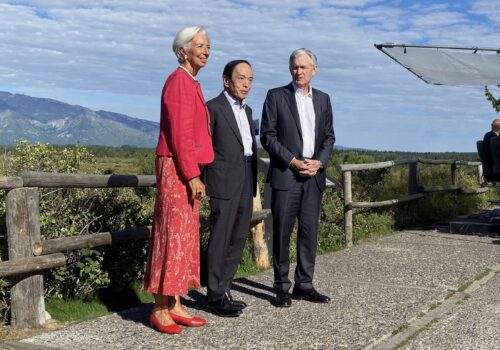## Think You’re in Control? ‘I Run the Country and the World’ Shows You’re Not.
We live in a world obsessed with control. From the dopamine rush of conquering a boss fight to meticulously optimizing our daily routines, the feeling of mastery is intoxicating. But what happens when the lines between player and puppet master blur? What if the systems we think we navigate are actually manipulating us?

The Rise of the Tech Titans: Who Controls the Digital Wallet?

The digital realm is rapidly evolving, with technology giants wielding increasing influence over our financial lives. The rise of tech titans like Apple, Google, and Amazon has blurred the lines between traditional finance and the digital world, raising concerns about the concentration of power and the potential for misuse.
These companies are not just platforms for commerce; they are increasingly becoming financial institutions in their own right. Apple Pay, Google Pay, and Amazon Pay offer seamless payment experiences, competing directly with traditional banks and credit card companies. Their vast user bases and sophisticated data analytics capabilities give them a significant advantage in understanding consumer spending habits and tailoring financial products.
This shift towards digital wallets has profound implications for the future of money. Who controls the flow of funds in this new ecosystem? Are tech giants poised to become the gatekeepers of our financial well-being? Gamestanza will explore these critical questions and analyze the potential consequences of this evolving financial landscape.

Leveling Up: CBDCs and the Potential for Financial Inclusion
Empowering the Unbanked: Bridging the Digital Divide
Central Bank Digital Currencies (CBDCs), backed by central banks, offer a unique opportunity to bridge the financial divide and empower the unbanked population. Millions of individuals worldwide lack access to traditional banking services, hindering their economic participation and social mobility. CBDCs, being digital and accessible through smartphones, can potentially provide a secure and affordable alternative, extending financial inclusion to underserved communities.
Gamestanza has witnessed firsthand the transformative power of technology in empowering individuals. Blockchain-based solutions have already demonstrated their potential in providing financial services to the unbanked, offering micro-loans, facilitating remittances, and enabling secure transactions in developing economies. CBDCs, with the backing of central banks, can amplify these efforts, fostering financial stability and economic growth in marginalized communities.
The Ethical Dilemma: Balancing Accessibility with Security
While the potential benefits of CBDCs are undeniable, their implementation raises crucial ethical considerations. Striking a balance between accessibility and security is paramount. Ensuring privacy and protecting user data from misuse are essential safeguards. Gamestanza believes that the development and deployment of CBDCs should prioritize transparency, accountability, and robust cybersecurity measures to mitigate potential risks.
Your Turn: Navigating the CBDC Landscape
Gamifying Finance: How Can Players Engage with CBDCs?
Gamestanza envisions a future where the world of finance becomes more interactive and engaging, leveraging the power of game mechanics to incentivize financial literacy and participation. CBDCs offer a unique platform for gamifying finance, enabling innovative applications that can educate and empower players. Imagine earning rewards for making responsible financial decisions, competing in virtual markets, or participating in interactive simulations that teach about budgeting, saving, and investing.
Decentralized Finance (DeFi): Can Blockchain Offer a Counterpoint?
The rise of Decentralized Finance (DeFi) presents an alternative paradigm to centralized financial systems. DeFi applications, built on blockchain technology, allow users to access financial services without intermediaries. While CBDCs are centralized, offering greater control and stability, DeFi emphasizes decentralization and user autonomy. Gamestanza believes that exploring the interplay between CBDCs and DeFi will shape the future of finance, creating a more inclusive and innovative ecosystem.
The Future of Play-to-Earn: CBDCs and the Evolution of In-Game Economies
The gaming industry is already embracing blockchain technology and tokenization, creating immersive virtual worlds where players can earn rewards for their skills and contributions. CBDCs can further enhance this paradigm, enabling seamless integration of in-game economies with the real world. Imagine using CBDCs to purchase virtual items, pay for in-game services, or even earn real-world income through play-to-earn models.
Beyond the Code: The Human Impact of CBDCs
The Power of Choice: CBDCs and the Erosion of Financial Freedom
While CBDCs offer numerous potential benefits, they also raise concerns about the erosion of financial freedom. The ability to choose one’s preferred financial service provider is fundamental to a free market. If CBDCs become the dominant form of money, it could lead to a concentration of power in the hands of central banks, potentially limiting individual choice and autonomy.
Gamestanza believes that striking a balance between innovation and individual liberty is crucial. Regulatory frameworks should ensure that CBDCs empower individuals while safeguarding their financial freedoms. Transparency, accountability, and consumer protection must be at the forefront of any CBDC implementation.
The Digital Divide: Who Benefits and Who Loses?
The adoption of CBDCs could exacerbate existing inequalities if not implemented carefully. Access to digital technologies and financial literacy varies widely across demographics and geographic regions. Gamestanza emphasizes the need for inclusive design and targeted initiatives to ensure that CBDCs benefit all segments of society, bridging the digital divide rather than widening it.
The Rise of the Algorithmic Economy: Will Humans Be Left Behind?
As CBDCs integrate with advanced algorithms and artificial intelligence, concerns arise about the potential for algorithmic bias and automation-driven job displacement. Gamestanza calls for a human-centered approach to CBDC development, prioritizing ethical considerations and ensuring that these technologies serve humanity, not the other way around.
Conclusion
So, does gaming really let us “run the country and the world”? The Atlantic argues that, while not literally controlling global affairs, games do offer a unique lens through which to understand power dynamics, societal structures, and the very nature of leadership. From the strategic complexities of Civilization to the collaborative chaos of Minecraft, games expose us to scenarios where we make decisions with real (albeit virtual) consequences. This, in turn, can foster critical thinking, problem-solving skills, and a nuanced understanding of the challenges facing our world. But the implications go beyond individual skill development. As games become increasingly sophisticated and immersive, they blur the lines between reality and simulation. This raises profound questions about the role of gaming in shaping our values, beliefs, and ultimately, our actions in the real world. Can the lessons learned in a virtual kingdom translate into tangible change in our own societies? Can games empower us to become more engaged and effective citizens? The answers to these questions remain open, but one thing is certain: the world of gaming is evolving, and its impact on our understanding of power, leadership, and the human experience is only just beginning to be explored. The future of “running the world” may not be found in a boardroom or a political arena, but in the controller of our hands. The question is, are we ready to lead?
